The Best Places to Buy Art, According to a Designer and Artist
A curated guide to finding unique, affordable pieces you’ll actually love.
Published On
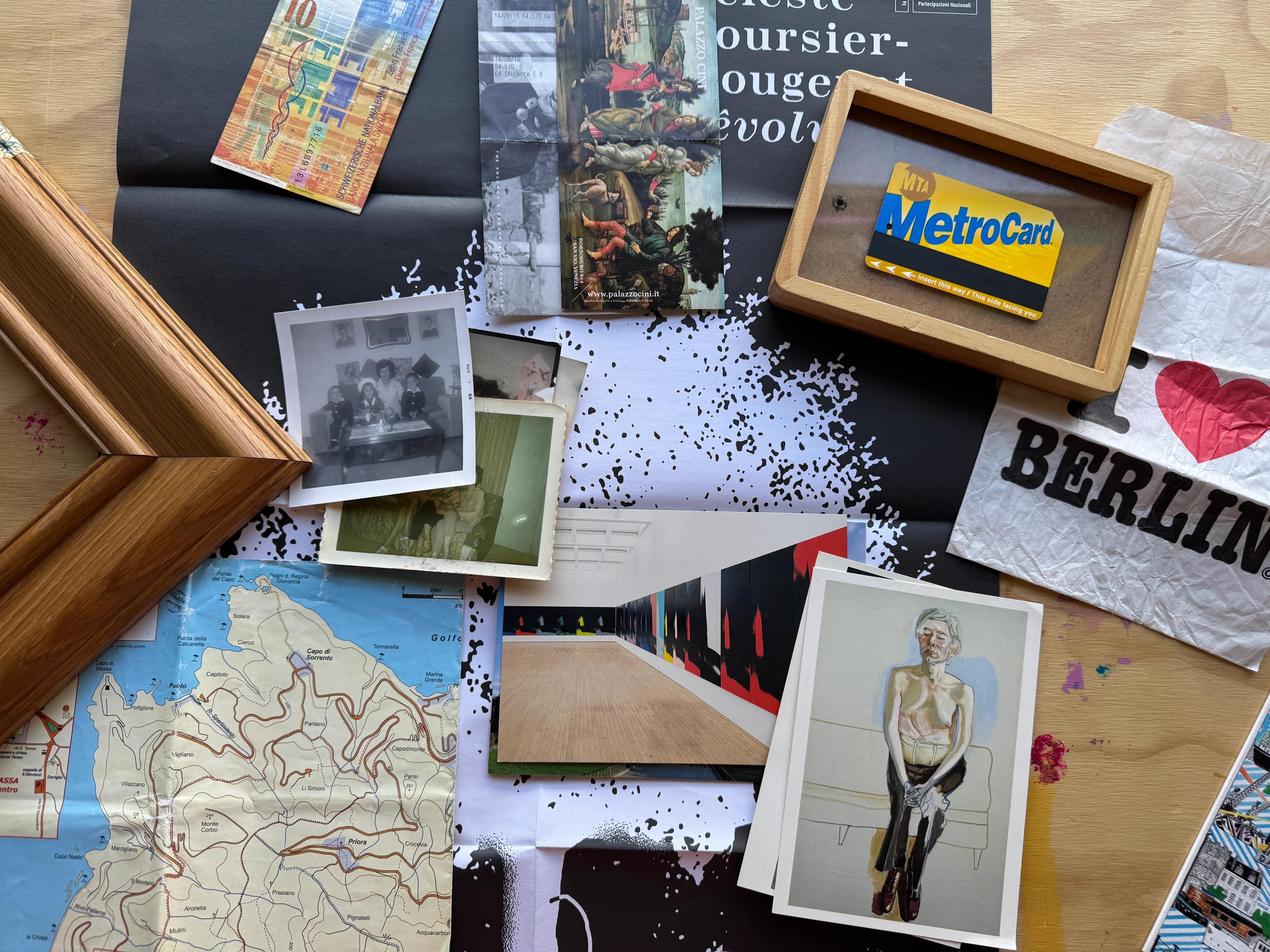
Photo by Lu Loveless
Each week, interior designer, artist, and self-proclaimed color obsessive Lu Loveless shares a peek into her design process—whether it’s a smart trick she swears by or a favorite resource from her personal folder. This week, she’s sharing how she finds art when she’s not making it herself.
There’s no shortage of places to buy art, but not all of them feel personal, exciting, or worth the investment. As both a designer and an artist, I’ve spent many hours hunting for and sometimes creating my own pieces that make a room feel just right. The perfect piece of art can tie an entire space together and convince people you actually had a plan all along. Finding that piece, though? That’s where it gets fun (and sometimes overwhelming).
Over the years, I’ve built up a little black book of my favorite art resources—places I turn to for clients, friends, and myself when a wall needs personality, drama, or just a little something. Here are my go-tos, whether you want to splurge, thrift, or hunt for treasure in the digital wild (the last one is my personal fave).
Local & In-Person Finds
There’s nothing quite like seeing art in real life. My favorite way to stumble onto something special? Local art fairs and markets. You get to meet the artist, hear their story, and maybe even snag a piece before they blow up and you can’t afford them anymore. I find that artists at local fairs (myself included) tend to offer a wide range of pricing—from super affordable and approachable prints to larger investment pieces. Supporting local artists doesn’t just bring unique pieces into your home, it helps keep creativity thriving in your community. Every purchase contributes to the local economy and increases the chances that talented artists will continue making beautiful work right in your own backyard.
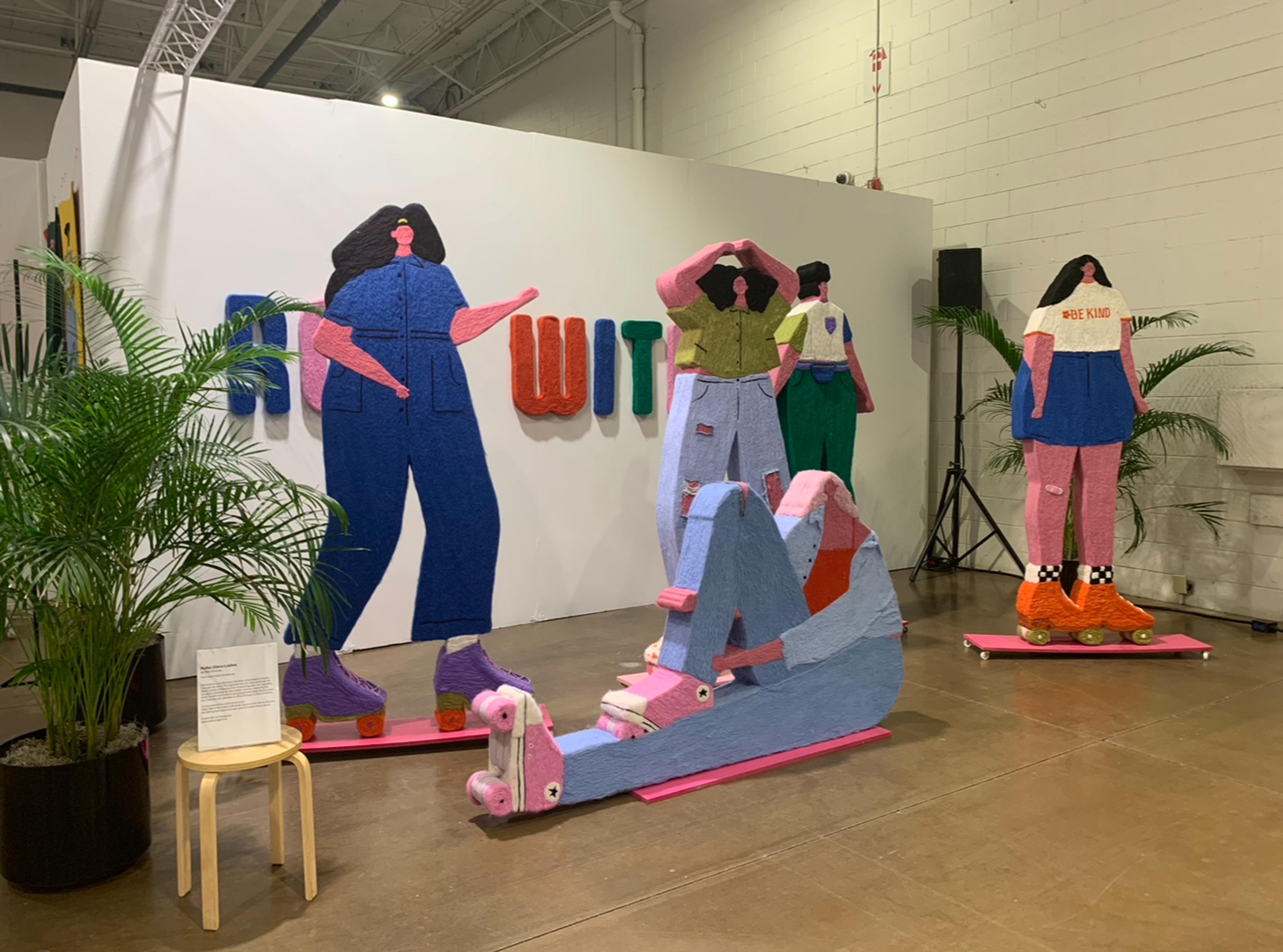
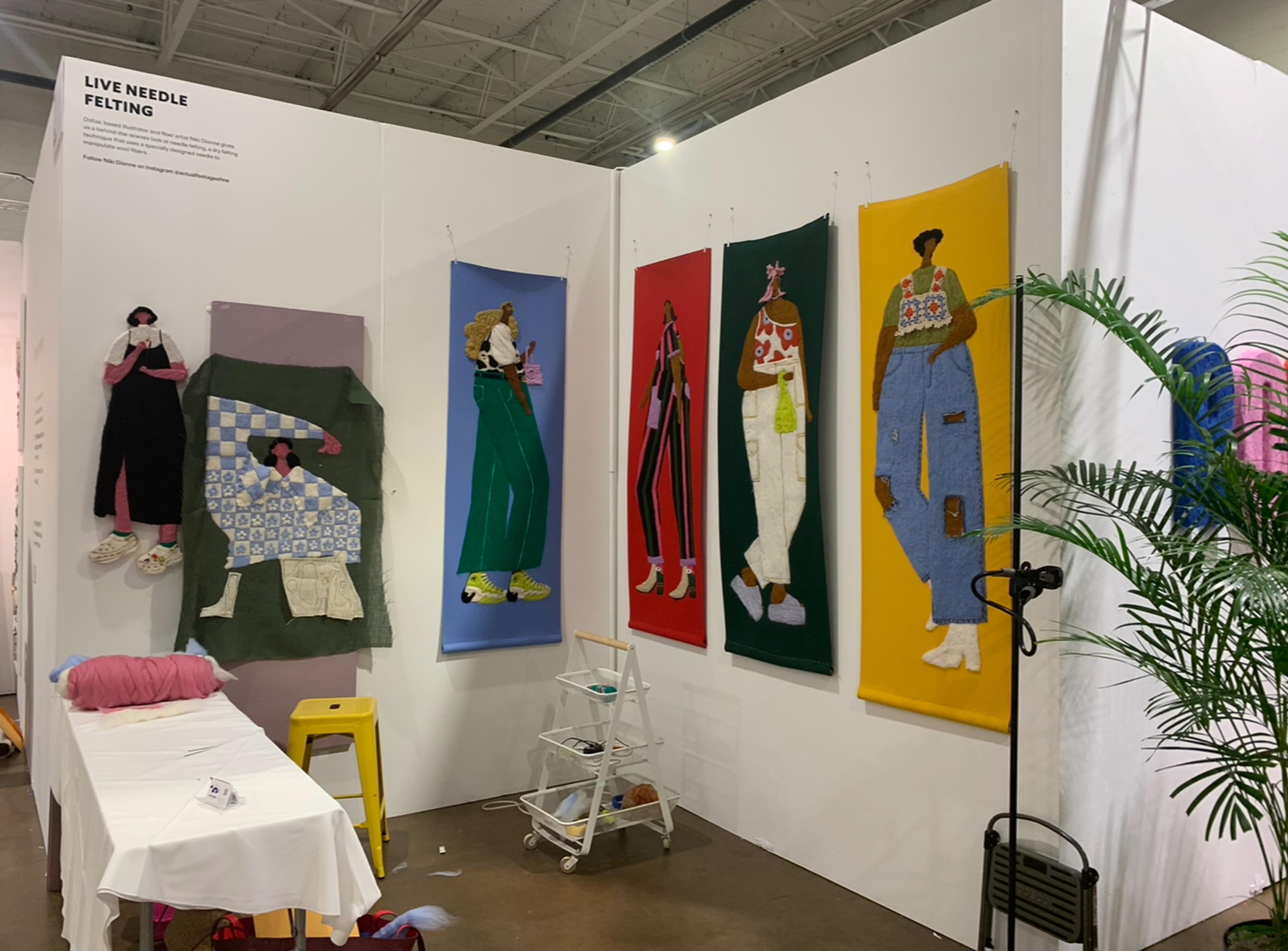
Featured Video
Pro tip: don’t be shy! Ask the artist about their process, what inspires them, or if they have any smaller pieces they keep tucked away. It may feel awkward but I promise you, the artist appreciates it.
Thrift stores, antique shops and estate or yard sales are also gold mines if you have the time to dig. Some of my favorite finds cost less than a frozen burrito from the gas station, and the thrill of rescuing something beautiful from under a pile of novelty mugs is unmatched. Look beyond the dusty landscapes and faded florals—check the frames (a vintage frame can make even a mediocre print look luxe), look for signatures, and watch for original works on canvas or paper. Even if you don’t recognize the artist, an original thrifted piece is 10 times more interesting than a mass-produced bird print from Target.
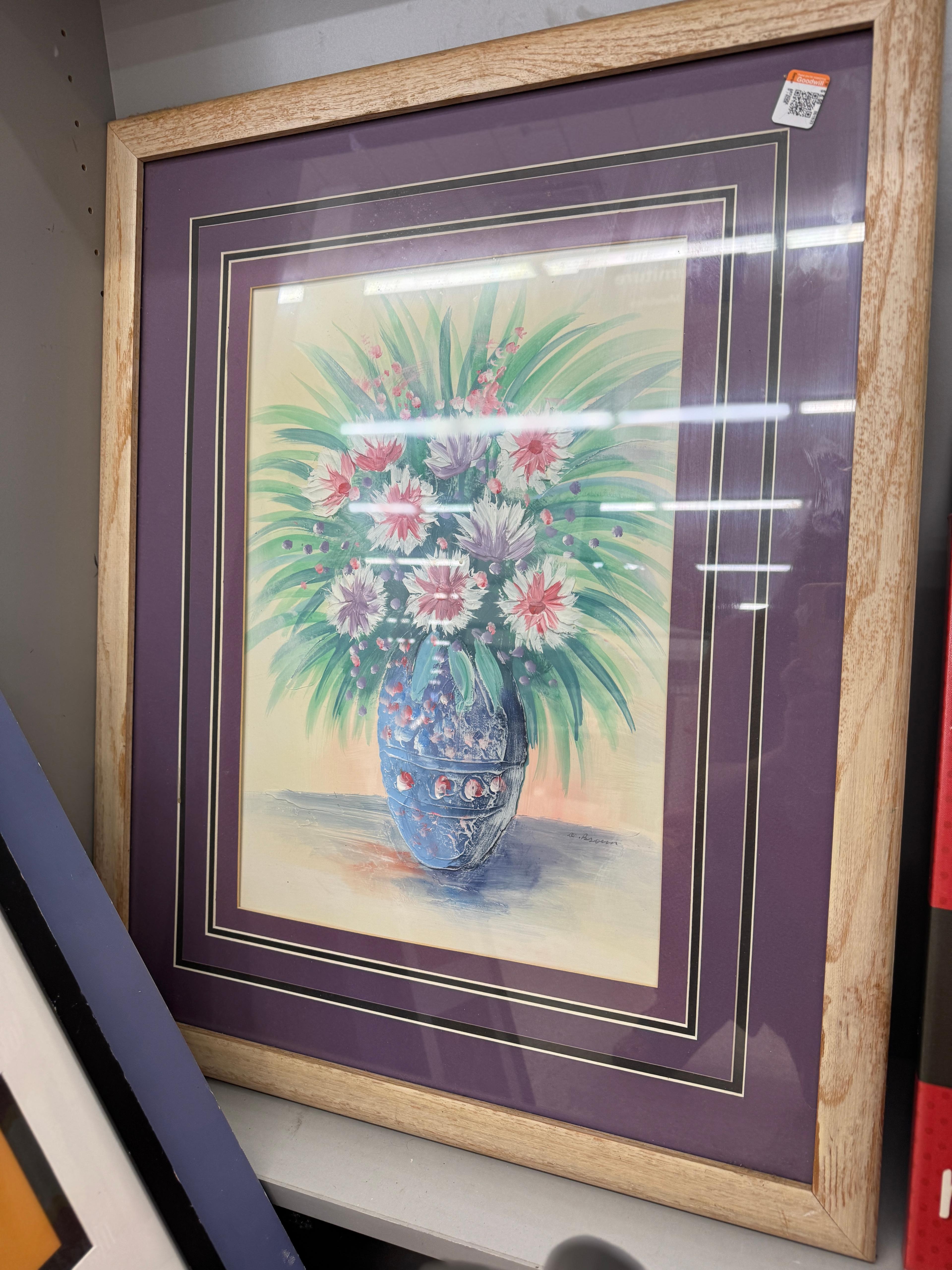
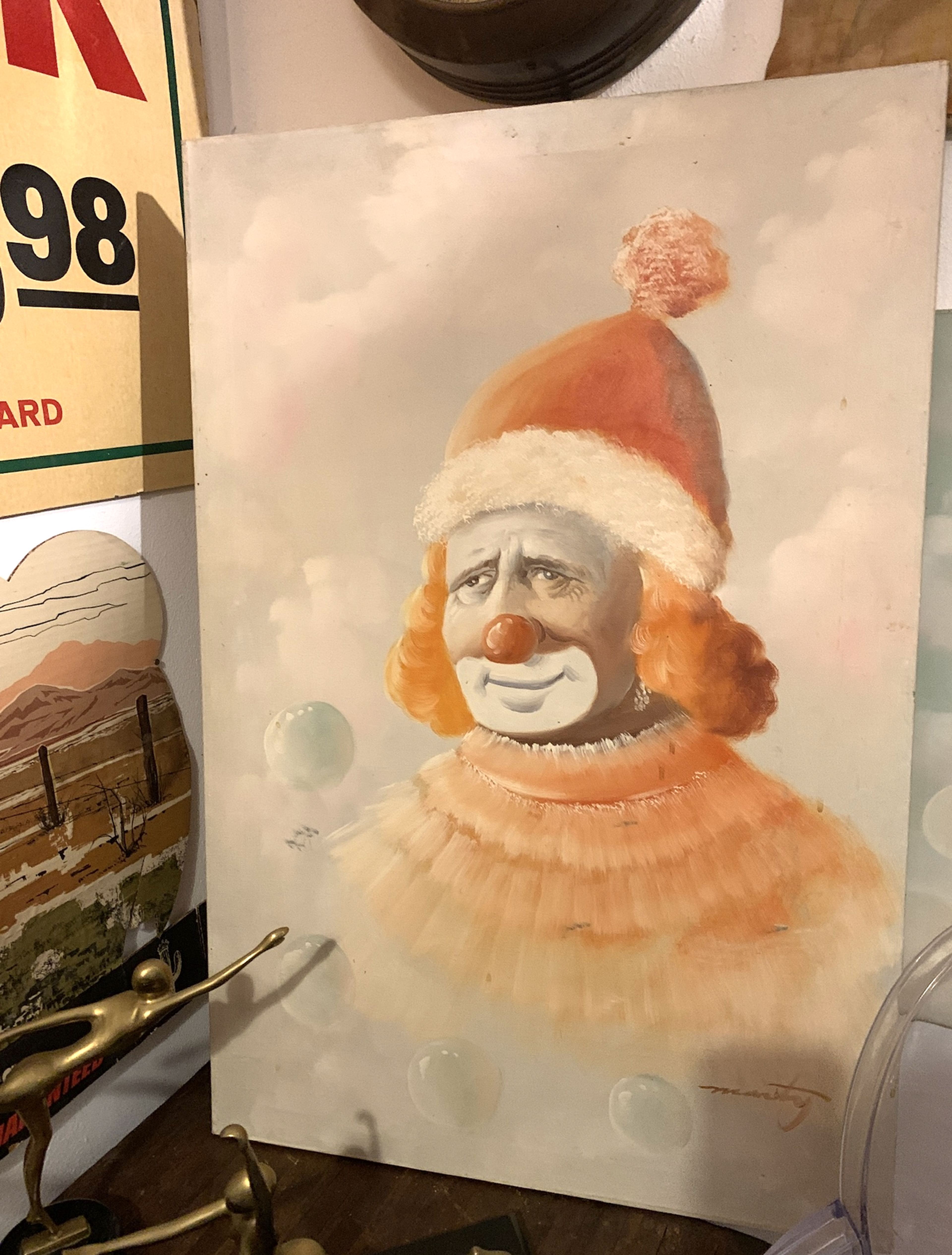
Pro tip: avoid buying generic giclée prints on canvas. I come across these A LOT at thrift stores and they usually scream “I came from a soul-less factory.”
Paper Goods
Don’t be limited to the obvious works of art on canvas. Vintage postcards and magazines can make for great conversation pieces when paired with a cool frame (maybe even a thrifted one). Vintage postcards, art magazines, and old exhibition books can make for some frame-worthy pieces. You’d be surprised how striking a full-page print or even a postage stamp can look once it’s matted behind glass. Try using an oversized mat and frame for a small vintage postcard to create an unexpected statement piece. These small-scale finds are often inexpensive and add a charming, personal touch to your collection.
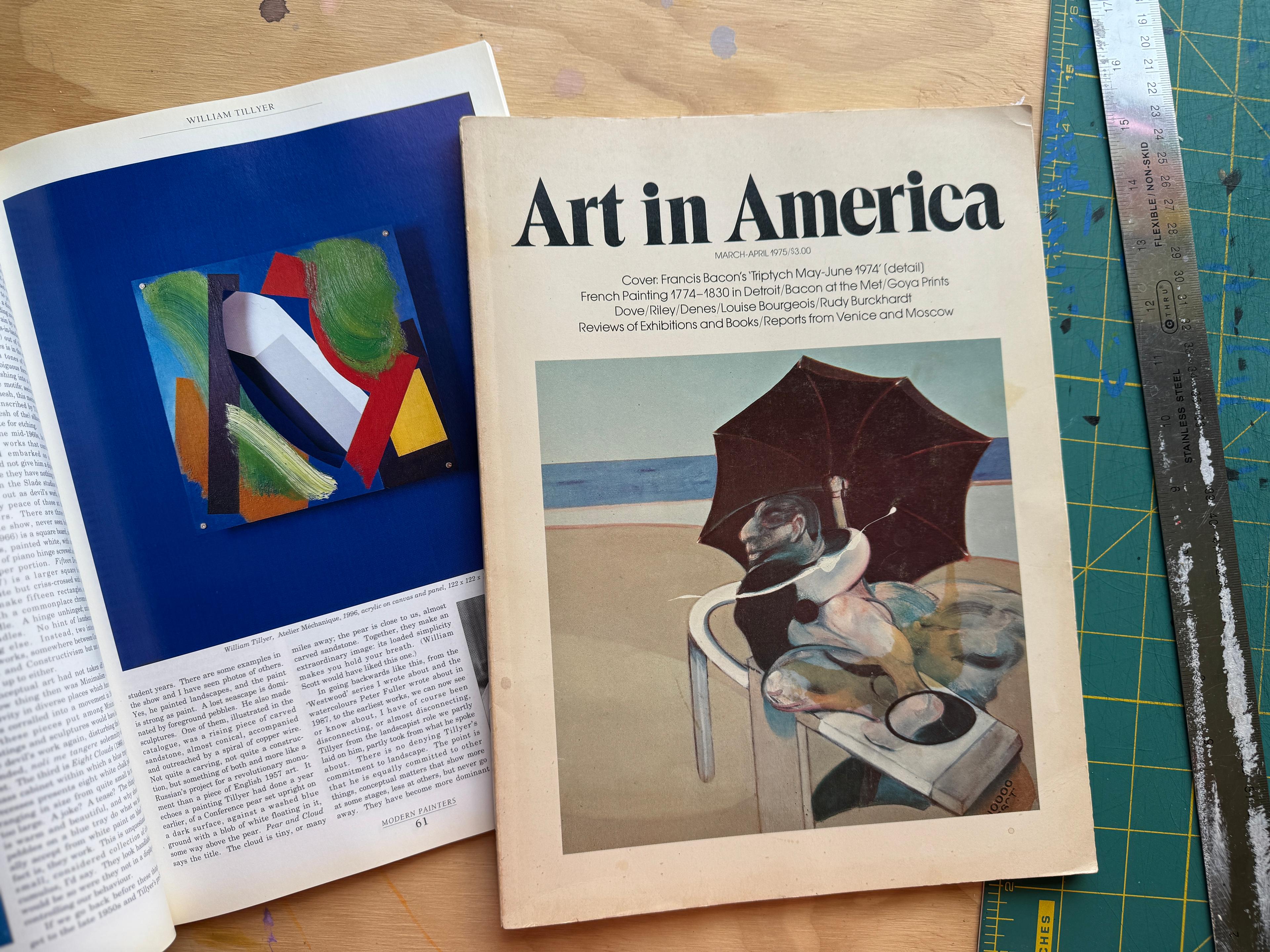
Pro tip: you don’t need a fancy mat board to frame something with odd dimensions. Instead, try using colored cardstock trimmed to the dimensions of your frame and use double-sided tape to adhere your piece.

Online Marketplaces
Sometimes the best finds are just a click away. My go-tos include Uprise Art, Tappan Collective, and Saatchi—all great for discovering emerging and established artists alike, and you can find originals that fit every budget. Facebook Marketplace is a surprisingly awesome way to find one-of-a-kind pieces ranging from local art to offbeat vintage finds (thank me later). Speaking of vintage, Chairish is perfect if you’re looking for vintage or one-of-a-kind pieces, and Etsy is a treasure trove for custom prints and artsy gifts. The trick online? Don’t get overwhelmed by all the choices. Start with your budget, then think about color and style, and let that guide you.
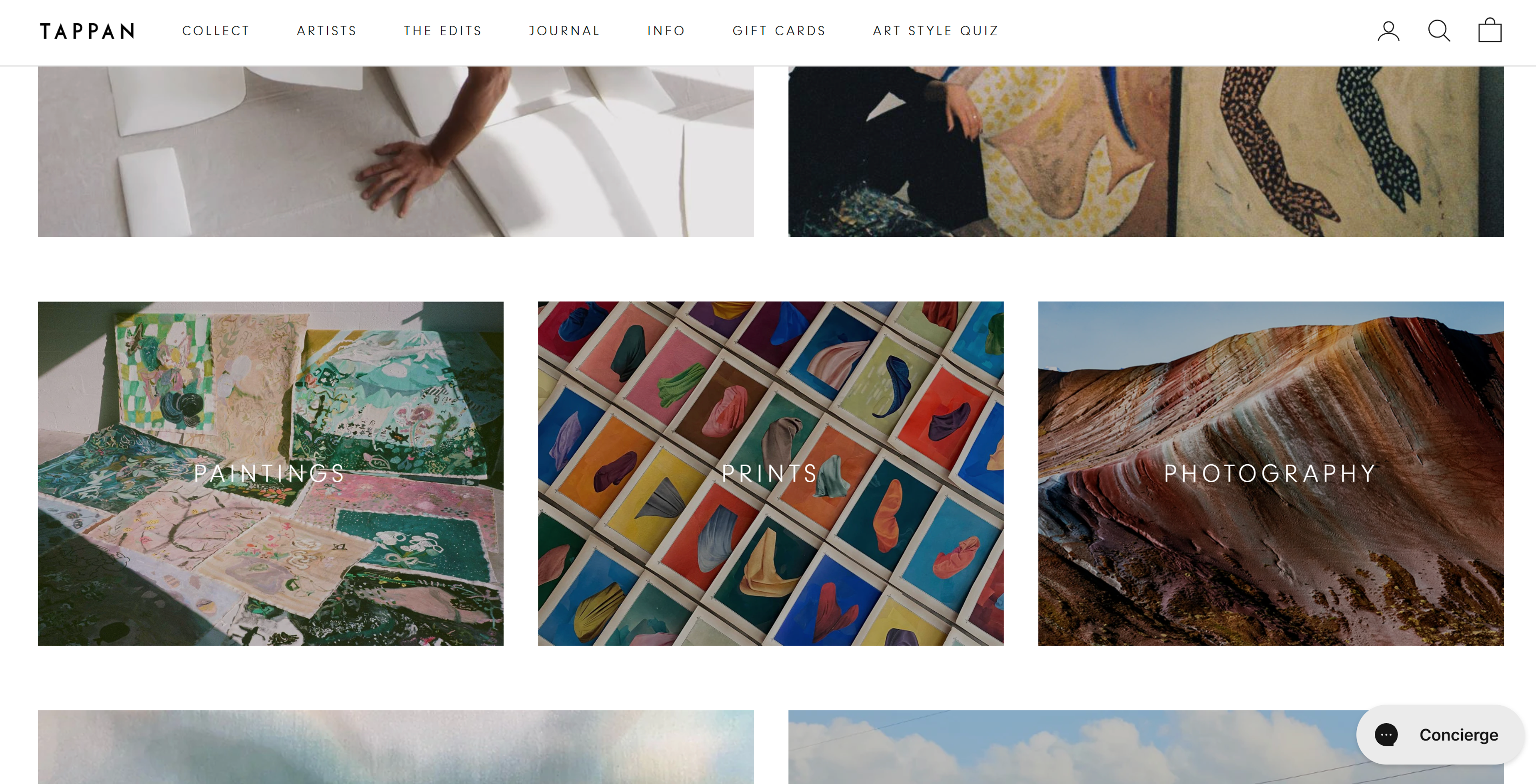
Pro tip: if you’re feeling overwhelmed by choice, look to see if the platform you’re using has a curator that can help you narrow down your search. Most of the better ones do (like my go-to’s above) and it won’t cost you a thing. They can save you an enormous amount of time and sanity.

Artist Direct
Sometimes, you don’t need a gallery or marketplace at all—just go straight to the source. Instagram is a treasure trove for discovering new artists. The search feature makes it easy to explore by medium, style, or location. You never know what gem you’ll stumble across while scrolling through hashtags, suggested accounts, or artist collaborations. I’ve sourced some amazing pieces by DMing artists on Instagram or signing up for their mailing lists. Often, you’ll get first dibs on new work before it even hits a gallery or shop by joining a mailing list. Bonus: it’s a great way to support artists directly and build a little personal connection along the way.
Pro tip: not all artists on Instagram want to deal with DMs and they will usually say so in their bios. Check there first and if it seems appropriate, slide into the DMs politely and be concise. Compliment their work, ask about availability, and don’t be afraid to inquire about pricing.
Unexpected Sources & Ideas
My final—and arguably most overlooked—source of art is what’s already within reach: the pieces you live with every day. Textiles like scarves, vintage robes, kimonos, or even beautifully patterned tea towels can double as statement art. Hung on a simple rod or behind glass in a beautiful frame, they bring texture, movement, and a story to your walls.
Ceramic plates aren’t just for the table—they can be displayed as works of art, bringing texture, history, and an interesting narrative to your walls.
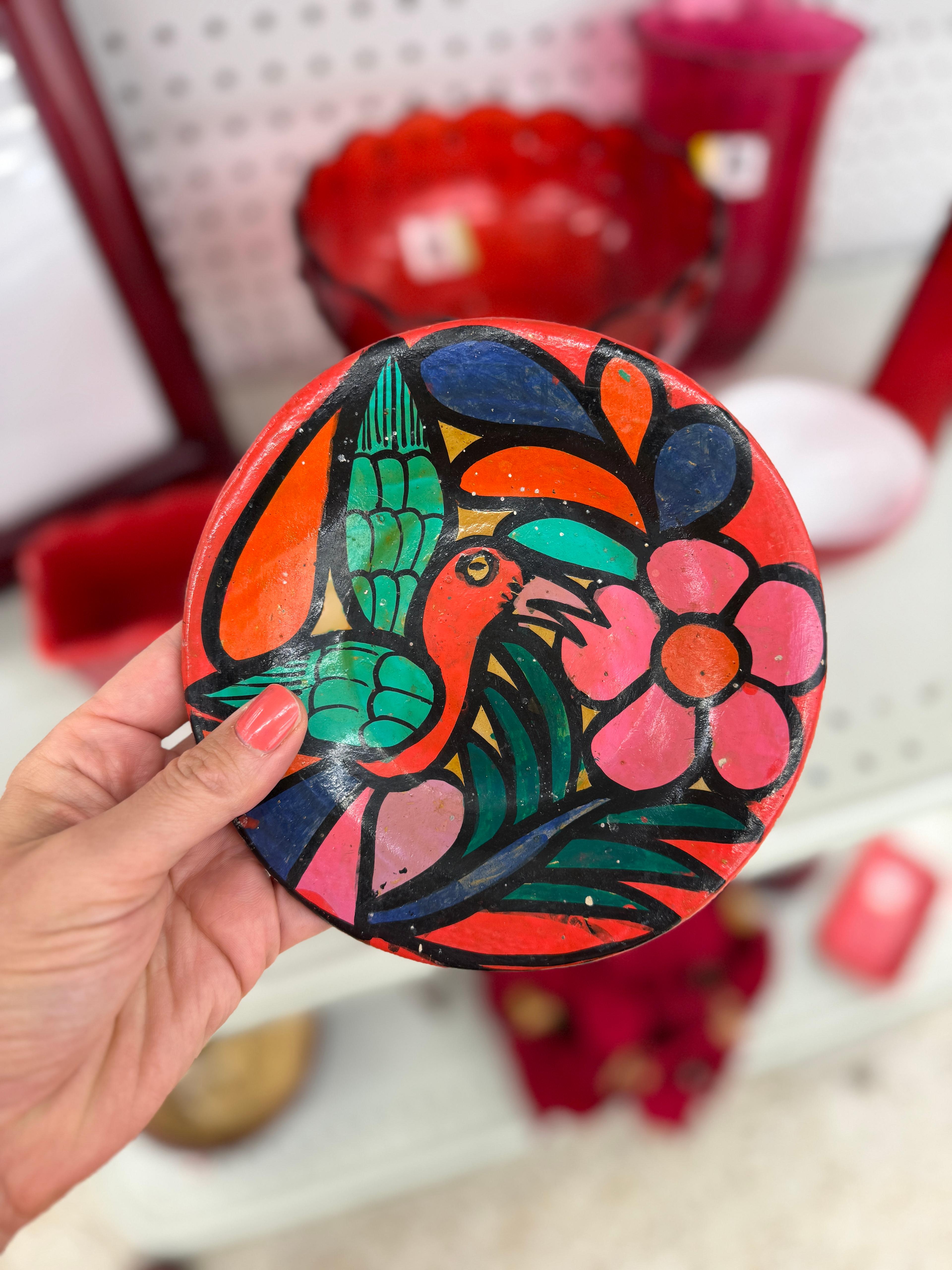
Pull out your memory box (you have one, right?) and take a trip down memory lane. Old bus maps, museum tickets, concert stubs, and even that old subway card from your first solo trip to a new place can be framed and hung for admiration. These types of objects usually hold the most sentimental value and shouldn’t be tucked away in a forgotten box in your attic.
Pro tip: keep your eyes peeled for the unexpected. Dig through your mom’s old record bins for a cool cover worth displaying. Politely rummage through your great aunt’s silk scarf collection in search of a frame-worthy pattern. You never know what you might find!
Art doesn’t have to be expensive or intimidating—it just has to resonate with you on some level. Whether it comes from a high-end marketplace, a thrift shop, or the back corner of a coffee shop, the right piece will make itself known. Finding art is an adventure, but the real reward is that unexpected, quirky treasure that makes your space uniquely yours.
With love,
Lu
- 1
How to Hang Art & Mirrors (Without Wrecking Your Walls)
Hanging something heavy can feel like high-stakes guesswork. Here’s exactly how to get it done—tools, tips, and all.
- 2
Our Favorite Etsy Hardware (That We Didn’t Buy… Yet)
Because sometimes it’s the little things that make the biggest difference.
- 3
Why the Best Wall Art Isn't Art at All
Some of the most unique ideas for wall decor aren't technically art at all—or are they?
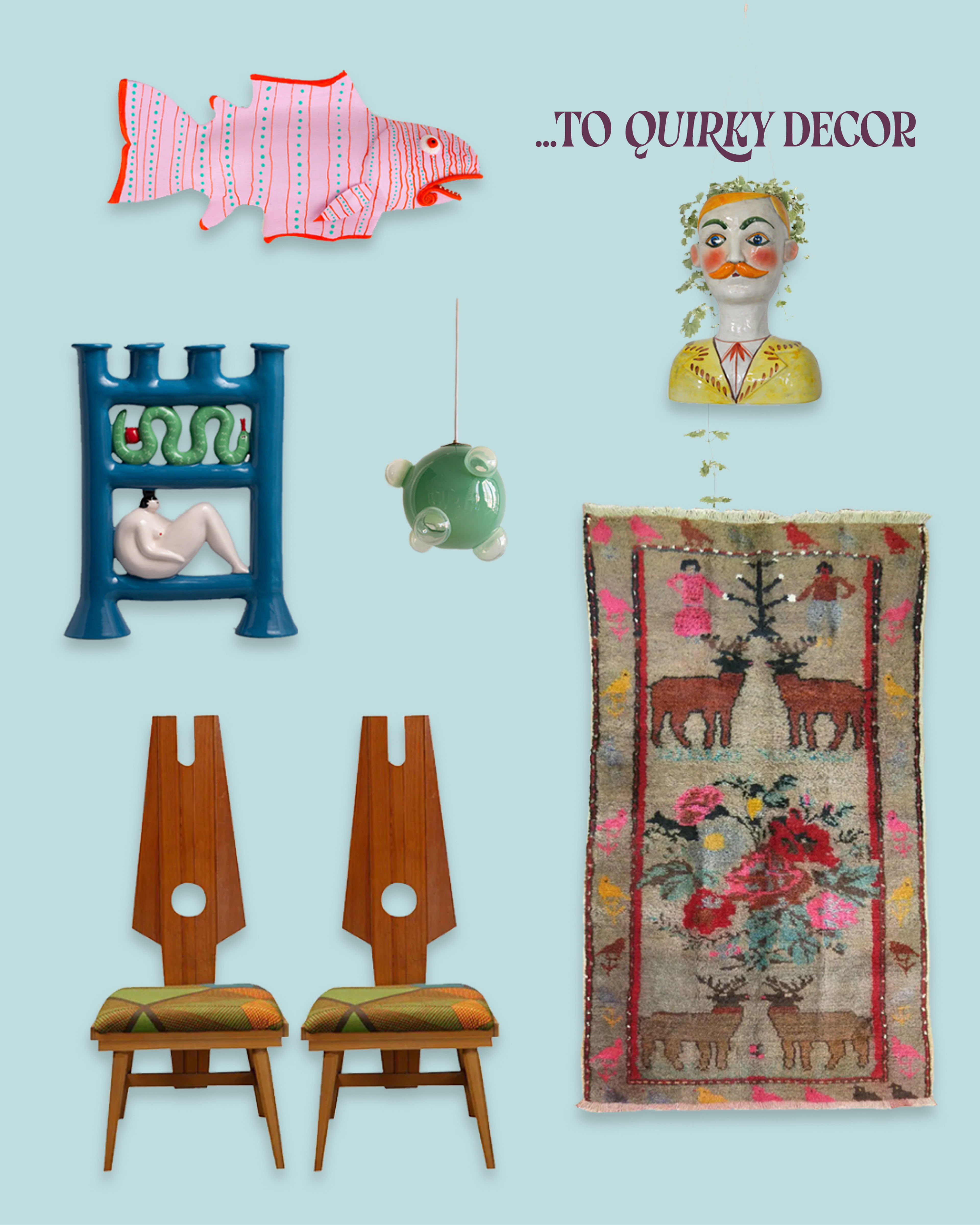
In Defense of Weird Decor: Why Your Home Needs a Little Oddity
A love letter to quirky pieces, vintage finds, and character-filled interiors.